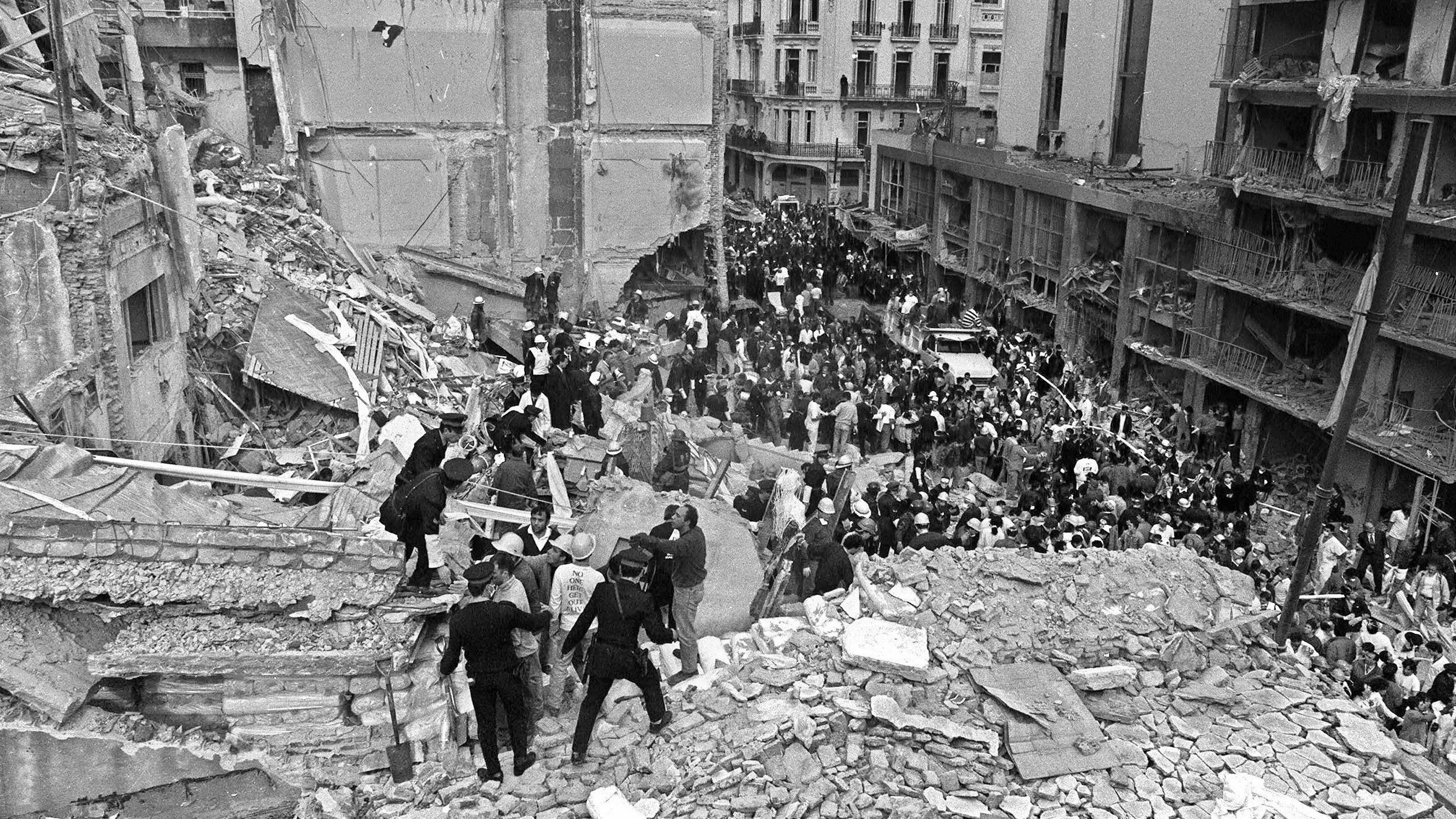Argentina To Try Iranian, Lebanese Suspects in Absentia Over 1994 AMIA Bombing
A judge in Argentina has authorized the first-ever trial in absentia for 10 Iranian and Lebanese suspects accused of orchestrating the 1994 bombing of the Argentine Israelite Mutual Association (AMIA) Jewish community center in Buenos Aires, which killed 85 people and injured more than 300. The decision, issued Thursday by Judge Daniel Rafecas, follows a recent legal reform pushed by President Javier Milei allowing trials of fugitives without their physical presence.
The AMIA bombing devastated Latin America’s largest Jewish community and is considered the deadliest terror attack in Argentina’s history. Though no group ever claimed responsibility, Argentine and Israeli officials have long accused Iran of directing the attack through the Lebanese group Hezbollah.
This holiday season, give to:
Truth and understanding
The Media Line's intrepid correspondents are in Israel, Gaza, Lebanon, Syria and Pakistan providing first-person reporting.
They all said they cover it.
We see it.
We report with just one agenda: the truth.


In his ruling, Rafecas called the trial in absentia “a tool that allows us, at the very least, to attempt to uncover the truth.” He said it was justified due to the “material impossibility” of securing the suspects, many of whom have been subject to international arrest warrants for years without result.
Among the accused are senior Iranian figures such as former President Ali Akbar Hashemi Rafsanjani, ex-Foreign Minister Ali Akbar Velayati, and several Hezbollah members. Argentina’s courts and the Inter-American Court of Human Rights have also faulted the Argentine state for obstructing the original investigation and failing to prevent the attack.
The trial reflects a broader effort by Milei—an outspoken ally of Israel and critic of Iran—to revive stalled justice in the decades-old case.

